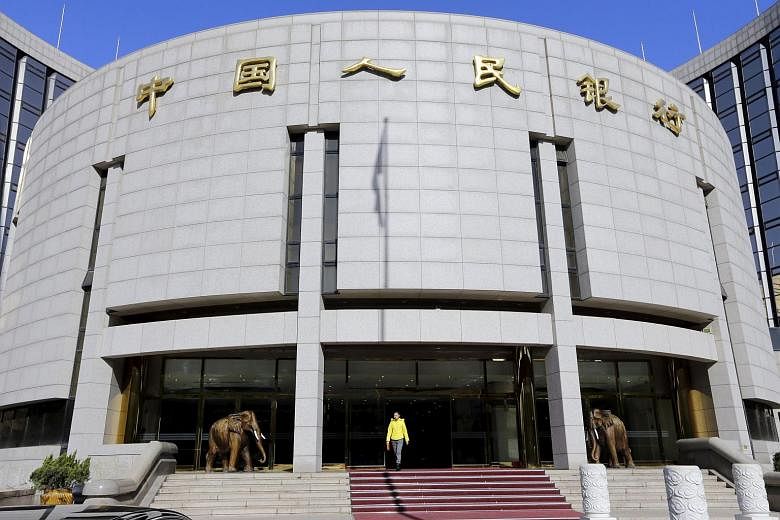BEIJING (BLOOMBERG) - China's central bank has drafted rules for a tax on foreign-exchange transactions to curb currency speculation, according to people with knowledge of the matter.
The initial rate of the so-called Tobin tax may be kept at zero to allow authorities time to refine the rules, said the people, who asked not to be identified as the discussions are private. The tax is not designed to disrupt hedging and other foreign-exchange transactions undertaken by companies, they said.
Imposing a tax on foreign-exchange trading would be the most extreme step yet by policy makers to prevent speculative bets against the Chinese currency, after state-run banks repeatedly intervened to support the yuan and the government intensified a crackdown on capital outflows.
A Tobin tax would complicate plans by China to create an international reserve currency and could undermine the leadership's pledge to increase the role of market forces in the world's second-largest economy.
The rules still need central government approval and it's not clear how quickly they can be implemented, the people said. The People's Bank of China didn't immediately respond to a faxed request for comment.
PBOC Deputy Governor Yi Gang raised the possibility of implementing the punitive measure late last year in an article written for China Finance magazine.
The yuan has declined 4.4 per cent since a surprise devaluation in August last year spooked global investors and spurred capital outflows. Bloomberg Intelligence estimates that US$1 trillion left the nation in 2015. The nation's defense of the currency depleted its foreign-exchange reserves by US$513 billion last year, the first-ever annual drop.
The Tobin tax takes its name from US economist James Tobin, who in 1972 suggested taking a cut of foreign-exchange trades to limit currency speculation. History is littered with government attempts to extract revenue from financial transactions, not all of which were successful and most of which had unintended consequences.
The Eurobond market, now the dominant forum for corporate fixed-income transactions, came into being after President John F Kennedy imposed a so-called interest-equalization tax in 1963 to make investing in foreign securities less alluring to US investors and ease a balance of payments deficit.
Plans for a European tax on financial trades fell into disarray in December as member states argued about its impact on world markets. Brazil's embattled President Dilma Rousseff has been pushing to revive a tax on financial transactions to shore up the government's budget, though the proposal faces opposition in Congress.

